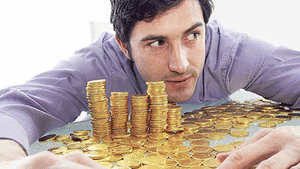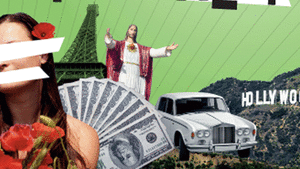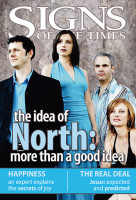Unofficially, Australia has a new national religion. This startling pronouncement was made by Professor Ian Lowe, president of the Australian Conservation Foundation, when he addressed the National Press Club in Canberra in late August.
“Consumerism is now our unofficial national religion, with ever larger shopping centres being built so we can worship seven days a week,” he said. And, making news on the same day and underlining his point, economists enthusiastically greeted another “healthy” increase in consumer spending for the month previous, despite increased interest rates and petrol prices.
Professor Lowe's primary concern is for the unsustainability of such a national lifestyle and the apparent inaction of governments and policymakers in the direction of bringing us back to a more balanced life.
“Each year on average we use more energy, travel further in larger and less efficient cars, live in larger houses, consume more resources and produce more waste,” he said.
And those are important concerns. But as an observer of and believer in a more traditional form of religion—Christianity—that once had greater influence in Australian lives, it seems we should also be asking questions as to the spiritual significance of this religious switch. And what better time than December to consider the competing claims for our allegiance offered by Christ and consumerism.
The system
In Seven Types of Ambiguity, Australian writer Elliot Perlman describes this “new,” all-pervading religion: “The relentless pursuit of the bottom line is the siren song of the times and the song is played over the public address systems in banks, in stores and supermarkets... . It has never been so loud. It's never been so ubiquitous. It has never before so routinely, so blatantly, ousted and nullified citizenship and notions of the common good... . It has never before so successfully colonised men's souls.”
Indeed, adds Albert Hsu in The Suburban Christian, “Modern consumer culture has made it virtually impossible to do anything but consume.”
What we must realise is that everything we purchase comes from somewhere and that the processes of production, manufacture and sale impact on many individuals, communities and the wider world along the way. Ultimately, consumerism is selfishness. As consumer culture is focused on getting as much as we can for ourselves, we are almost compelled to seek the lowest possible price and the best “value for money” for each of the endless succession of purchases we make. But cheapest isn't always best. A discount price at a shopping centre near you comes at the expense of someone or something else along the way. At the same time as creating in us the “need” for more and more, the system of consumerism distances us from the places in which the goods are produced. We lose any personal connection with the real people who work to produce them and in the process we are also depersonalised.
When the potential relationship between one person and another is reduced to a producer–consumer exchange, we also become merely another piece of a system. We are defined by our status as consumers. We are valued by what we can purchase and possess, and—as the cliché puts it—our time becomes money. If we can recognise this belittling of our humanity, we can gain an insight into the larger, soul-destroying dynamics of the “religion” of consumerism.
Norman Wirzba sums up in stark terms the “every-man-for-himself ” ethic of consumerism: “When value has its source and goal in the autonomy of the individual, then the conditions for a new economic order emerge. Economies cease to be driven and constrained by a transcendent vision of justice and the good. Work ceases to be a vocation, but instead becomes a task for the procurement of money, which now becomes the universally acclaimed ‘good.’ How far this new economic thinking departed from traditional understand- ing can be seen in the fact that the virtue of the free-market economy, indeed its necessary precondititon—the drive for personal wealth—was considered a vice in almost every spiritual tradition that preceded it” (The Paradise of God: Renewing Religion in an Ecological Age).
The Alternative
Among those preceding spiritual traditions is Christianity. Not surprisingly, Christianity offers an alternative description of reality and what is most important in our lives. While consumerism goads us to continual dissatisfaction and worry, Jesus taught, “Don’t worry about everyday life—whether you have enough food to eat or clothes to wear. For life consists of far more than food and clothing” (Luke 12:22, 23*). Jesus went on to describe how worry about such things is pointless. Worrying about and relentlessly pursuing and acquiring “stuff” adds nothing to our ultimate worth. He pointed to the birds and the flowers. God cares for them, Jesus said, so why wouldn’t He care for you?
Not only are our exorbitant wish lists out of sync with God’s explanation of the world, even the necessities—like clothes and food—are not worth troubling ourselves over. Jesus said, “These things dominate the thoughts of most people, but your Father already knows your needs. He will give you all you need from day to day if you make the Kingdom of God your primary concern” (Luke 12:30, 31).
This is a key concept in Jesus’ explanation of the world and how earthly life is best lived. Jesus spoke of an alternative, present reality in which we imagine what the world would be like if God reigned in place of the dominant powers and forces that shape our societies.
If the kingdom of God is our primary concern, the claims and clamours of the world around us—the “siren song” of the market, the advertisers and the shopping mall—lose their grip on us. Our priorities are radically reordered.
When this goes against the current of our culture so dramatically, it looks and feels like a risk to reorganise our lives in such a way. That’s why Jesus included the promise that all we need will be given to us, if we take God seriously in this way. The risk remains; it comes down to how much we trust the reality of the kingdom of God. But it is on the strength of this promise that Jesus urged us to take a further step.
Investment Advice
In a culture obsessed with acquisition and accumulation, one can hardly imagine a more radical, countercultural act than simply giving something away. But Jesus said, “Sell what you have and give to those in need. This will store
up treasure for you in heaven! And the purses of heaven have no holes in them. Your treasure will be safe—no thief
can steal it and no moth can destroy it. Wherever your treasure is, there your heart and thoughts will also be” (Luke 12:33, 34).
Jesus calls us to invest our lives in things that will last. And naturally, where we invest our energy, time and money will be where our lives will be focused. Jesus recognised the double effect: We invest in what we believe in; and we believe in what we invest in.
It’s the same principle that drives the dizzying madness of our new pseudo-religion, consumerism. We work toward getting more “stuff,” believing it will makes us happy; so we invest our time, energy and ultimately our happiness—as well as that of other people and communities along the way—in the pursuit of it.
Jesus made the distinction between these two systems of belief: “No-one can serve two masters. For you will hate one and love the other, or be devoted to one and despise the other. You cannot serve both God and money” (Luke 16:13).
In contrast with such a self-defeating and destructive obsession, there is a certain simplicity, assurance and essential goodness to the investment advice of Jesus: Invest your life in something that will last forever.
*Bible quotations are from the New Living Translation.






